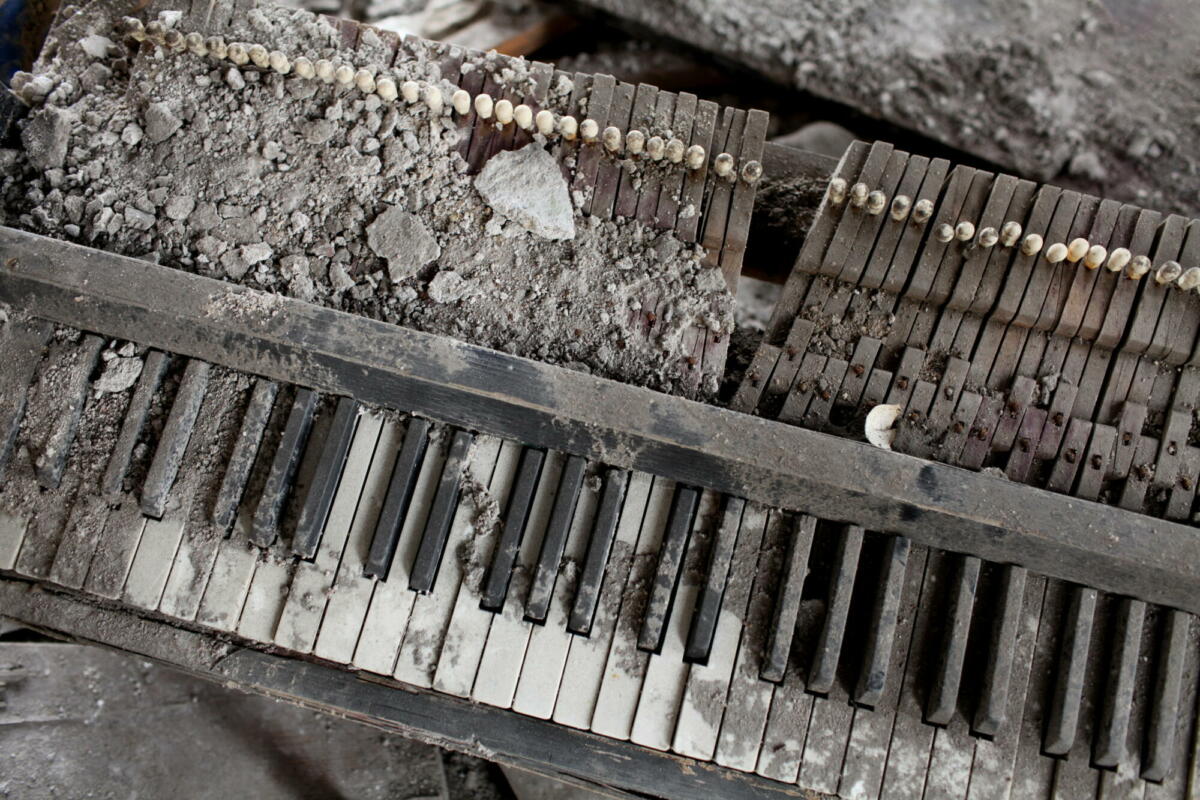Music, War and Peace 1922 – 2022 project promotes a common European culture based on tolerance, peace and democracy
On November 20 and 21, 2023, a symposium Perspectives on Music in Times of War and a series of concerts on the topic Music in Times of War gathered around 40 participants from five different countries. The events were organised by Uniarts History Forum and Sibelius Academy under the supervision of Dr Anne Piirainen. Read Amaury du Closel`s (Forum Voix Etouffées) blog post about the project now extented until 30 June, 2024.

My name is Amaury du Closel. I am a conductor and a composer, and the coordinator of the “Music, War and Peace in Europe 1922-2022” European project in which framework the symposium and the concerts took place. Since the beginning of my career, I have been particularly interested in the music of composers who were victims of totalitarianisms. I wrote the first book in French on the victims of Nazism “Les voix étouffées du troisième Reich – entartete Musik” in 2005, and founded the Forum Voix Etouffées in 2003 with the aim of raising awareness of the music of these composers, most of whom have remained unknown. Since 2009, we have been working with the European Union on intra-European projects bringing together musicians, researchers, and educators to promote these composers toward the general public and explore the role of music in authoritarian regimes. Hence the purpose of this symposium held at the Sibelius Academy on November 20 and 21, 2023.
Boris Romantschenko, a survivor of the Nazi concentration camps, was killed by Russian forces on 22 March 2022, when the building where he lived in Kharkiv, in north-eastern Ukraine, was bombed. From one totalitarianism to another, the fate of this 96-year-old man, who had survived Buchenwald and Bergen-Belsen among other places, tragically belies a certain European naivety, which believed that war was over since the fall of Nazism and the Soviet Union. The war in Ukraine is a tragic reminder of how little we can learn from history, and how the work of remembering, which is expected to prevent the mistakes of the past from being repeated, must always be put back on the drawing board.
Disinformation and revisionism are the main weapons of the Kremlin’s propaganda. The power of events is such that it makes us forget the fact that in certain illiberal EU Member States, solidarity is being used to mask the undermining of the rule of law and fundamental freedoms, and the fact that anti-Semitism, xenophobia, and anti-Europeanism continue to thrive in a low-key way, in a general context of progressive amnesia about the history of the Holocaust. Since 2009, the Voix Étouffées (Stifled Voices) project, of which this event was a part, has travelled throughout the European Union with the support of the Europe for Citizens programme of the European Commission, using the music of composers who were victims of the totalitarian regimes of 20th century Europe as a means of transmitting the memory of the convulsions on which modern Europe was built.
The “Music, War and Peace in Europe 1922-2022” project – symbolically using the key dates in contemporary Ukrainian history as timemarks (1922: the country’s attachment to the USSR and loss of independence, 2022: the beginning of the Russian invasion) – is a reminder that many European wars of the twentieth century were marked by a will to commit genocide. The Holocaust first and foremost, but also the massacres at Srebrenica in Bosnia-Herzegovina, the massacres in Kosovo, and war crimes such as those currently taking place in Ukraine. In all these circumstances, even the most tragic, music has played a fundamental role in inspiring resistance and alleviating the suffering of prisoners in concentration camps and of the civilian population. In some cases, as in the Baltic States, music is a powerful driving force on the road to independence. During the siege of Sarajevo, 48 concerts were held in the city under sniper fire, including the 1994 concerts by the rock band Iron Maiden, or Mozart’s Requiem conducted by Zubin Mehta.
The project’s geographical organisation symbolically constitutes a cultural front against the Russian aggressor, since from Finland to the Black Sea, it brings together all the countries sharing a border with Russia or Ukraine, and includes 3 associated partners in Lviv, Kyiv and Sarajevo.
Amaury du Closel
Forum Voix Etouffée, Conductor and a composer, and the coordinator of the “Music, War and Peace in Europe 1922-2022”
Dynamic interpretations of the past
The Uniarts Helsinki History Forum blog regularly publishes comments on topical themes and initiatives regarding the history of performing arts. The blog posts are written by researchers affiliated with the Uniarts History Forum. In their texts, the researchers shed light on both their own academic projects and the fields of arts and history research in general. The blog “Dynamic interpretations of the past” is a publication (ISSN 2736-9986). Editorial board: Anne Kauppala (editor in chief), Kaarina Kilpiö, Vesa Kurkela, Markus Mantere, Saijaleena Rantanen and Johanna Rauhaniemi (editorial coordinator).
Taideyliopiston Historiafoorumi -tutkimuskeskuksen blogissa julkaistaan säännöllisesti puheenvuoroja esittävien taiteiden historiantutkimuksen ajankohtaisista aiheista ja aloitteista. Blogikirjoitukset kertovat niin tutkimuskeskuksen tutkijoiden omien hankkeista kuin yleisemminkin historian- ja taiteentutkimuksen kentän ilmiöistä. “Dynamic Interpretations of the Past” -blogi on julkaisu (ISSN 2736-9986). Toimitusneuvosto: Anne Kauppala (päätoimittaja), Kaarina Kilpiö, Vesa Kurkela, Markus Mantere, Saijaleena Rantanen ja Johanna Rauhaniemi (toimitussihteeri),
I Konstuniversitetets Historieforums blogg publicerar vi regelbundet kommentarer och initiativ om scenkonstens och musikens historia. Våra bloggtexter är skrivna av de forskare som är affilierade vid Konstuniversitetets Historieforum. Texterna belyser såväl forskarnas egna akademiska projekt som forskningsfälten kring historie- och konstforskning i allmänhet. Bloggen “Dynamic interpretations of the past” är en publication (ISSN 2736-9986). Redaktionsråd: Anne Kauppala (ordförande för redaktionsrådet), Kaarina Kilpiö, Vesa Kurkela, Markus Mantere, Saijaleena Rantanen and Johanna Rauhaniemi (redaktionssekreterare)
Latest posts
Follow blog